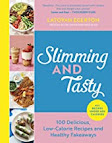Dietary Food Choices and Medical Cannabis Working Together for Pain Management

While numerous patients are looking for new approaches for managing chronic pain, a majority of them are embracing a combination of dietary approaches and medical cannabis. This dual-pronged approach highlights the potential for a holistic lifestyle to foster well-being.
Chronic pain is one of the hardest challenges for doctors and patients alike. While treatments are available, there has also been a focus on complementary therapy in the last few years. By incorporating thoughtfully considered dietary options and carefully guided medical cannabis therapy, there are new approaches for managing everyday health.
Why Patients Are Trying Medical Cannabis
In addition to drug-based treatments, medical cannabis has also been attracting attention from patients and professionals. In the vast majority of areas of the world, therapy programmes are becoming more systematic, enabling patients to access support in a controlled and safe environment. Most patients considering consulting go to specialists at the world's best medical cannabis clinic in an effort to achieve a more defined sense of how treatment would support their lifestyle.
Why this area is of particular interest is that patients use cannabis alongside other methods of wellness. Rather than relying exclusively on a single method, patients may consider cannabis a toolbox that also includes diet, exercise and mindfulness. This holistic approach to considering methods is a wider trend toward more holistic models of health, in which many facets of care are explored relative to each other. Of particular note, while medical cannabis has been studied in a wide variety of contexts, more work is required to elucidate its contributions to long-term control of pain fully.
Understanding the Role of Nutrition in Chronic Pain
Food has long had a relationship with health and diet treatment for chronic pain is getting more attention. Certain styles of eating, for example, those that are rich in whole grains, lean protein, fruits and vegetables, are regarded by many as healthy overall. No particular diet provides a final solution for pain, yet the foods that a patient chooses can potentially influence how their body responds to aches and stresses.
The inflammation and diet connection has long been discussed in the literature. Some foods, like nuts and oily fish, are seen as associated with reduced levels of inflammation, while highly processed foods have a converse association. Patients establishing a daily regimen from well-balanced meals may uphold total well-being more effectively, while diet alterations may be part of the puzzle. More literature is needed, yet further emphasis on nutrition positions it in broader discussions of the control of pain.
Daily Meal Alternatives
When patients compare nutrition and cannabis use side by side, the day-to-day routines come into consideration. A roster of nutrient-dense and easy-to-use foods helps it become easier to maintain a steady pattern. A few key concerns that come into perspective are adding foods that are high in vegetables, complex carbs and protein. Patients routinely report that considering hydration and portion control helps retain more energy throughout the day.
Some even organise mealtimes relative to when they plan to medicate through medical cannabis in hopes that they might avoid any kind of discomfort. While personal choices vary, it is always a matter of balance. While there is no one-size-fits-all rule, staying conscious of eating choices gives patients greater control over how medical cannabis gets included into their lifestyle. Online forums and patient discussions often accentuate this factor and posts like Curaleaf clinic reviews show how patients balance out these approaches in practice.
Professional Guidance and Ongoing Research
Both cannabis and nutrition are complex areas and there is much that is yet unknown about a potential interaction. This is why patients are often told to talk with healthcare professionals before any significant change. Doctors, nutritionists and cannabis specialists can help patients decide what would be ideal for their unique needs.
More research into medical cannabis and dietary methods is underway and it is ongoing. Scientists are not only studying cannabis's potential for personal conditions, but also the potential for other foods to modify inflammation, mood and energy. This new body of work shows a trend toward wanting more evidence-based guidance for patients. Nonetheless, since individual reactions are unique, expert guidance is also essential in getting treatment approaches that are individualised and safe.
Formulating Holistic Approaches for Pain Management
Integrating nutrition wisdom and medical cannabis is a step toward more balanced modes of healthcare. Patients more frequently recognise that no treatment exists in a vacuum and multi-method approaches may attain some sort of balance for one's day-to-day. Even when outcomes are variable, the impetus for tackling things from a variety of angles shows how attitudes toward chronic pain are shifting.
With increased research, patients will be able to access more specific knowledge about how diet and cannabis can complement one another. This may open the way for more individual treatment regimes that accommodate lifestyle and cultural differences. Until that time, fostering open discussion between patients, families and healthcare practitioners is one of the best ways by which responsible modes of caring can be safeguarded.
Chronic pain will always require careful and intentional management, but the combination of medical cannabis and dietary food choice holds potential as part of a comprehensive toolkit. Patients considering both are not looking for a cure-all but a lifestyle that acknowledges complexity. With increasing investigation and professional support, this holistic approach has the potential to redefine long-term health and well-being for patients.

.png)









0 Comments